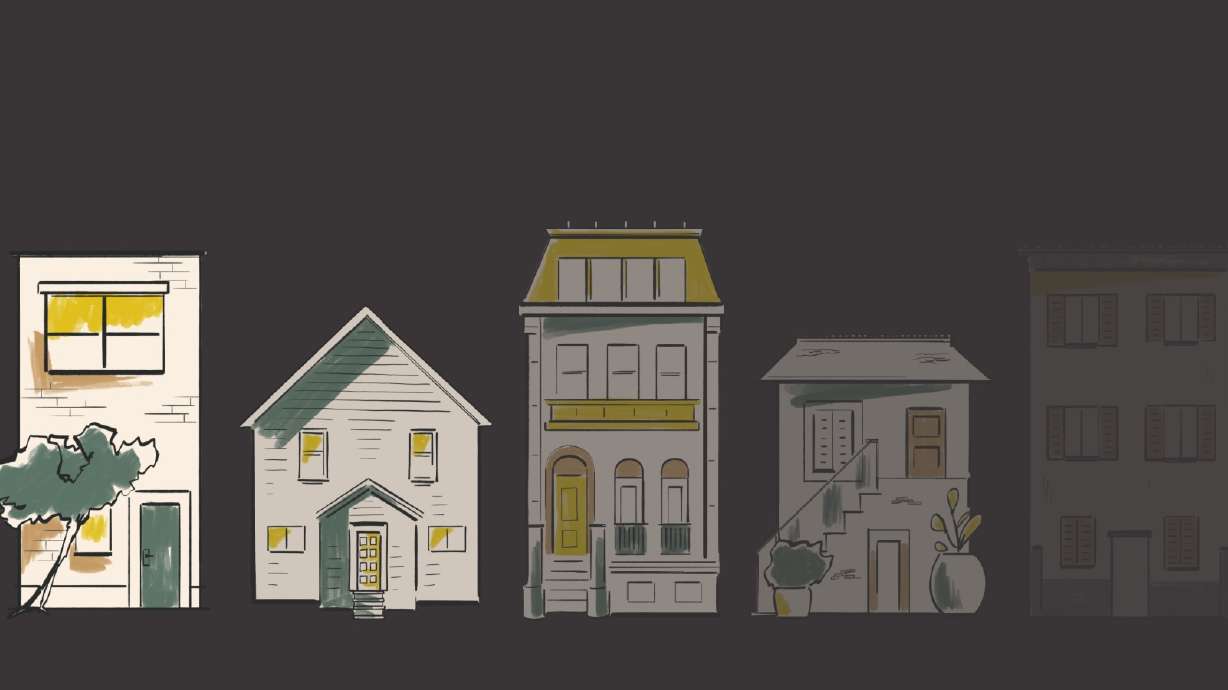Estimated read time: 3-4 minutes
This archived news story is available only for your personal, non-commercial use. Information in the story may be outdated or superseded by additional information. Reading or replaying the story in its archived form does not constitute a republication of the story.
SALT LAKE CITY — A new report by the Kem C. Gardner Policy Institute links housing affordability to indirect and direct health impacts for Utahns.
The issue of housing affordability has been consistently raised as the state continues to grapple with the housing crisis. Utah was ranked third in a list of least-affordable states to buy a home, according to an April report by BestBrokers.com. The report compared the state's housing prices to the average Utahn's income, and it ranked just behind Hawaii and California.
Housing is at its least affordable point in decades by almost any measure; almost 41 million households — nearly one-third — are cost-burdened, including more than half of renters and 19 million homeowners, according to U.S. Census Bureau data. In Utah, 40% of renters and nearly 18% of homeowners are housing cost-burdened, with most low-income households experiencing housing cost burden, according to Kem C. Gardner Policy Institute's report.
That cost burden grows for the lowest-income renters, with data from the National Low Income Housing Coalition showing that no state has an adequate supply of affordable rental housing.
There is a shortage of more than 7 million affordable homes for the nation's 10.8 million-plus extremely low-income families, according to the coalition. Additionally, it found no states or counties where a renter working full time at minimum wage can afford a two-bedroom apartment. All these factors can have both indirect and direct health impacts for Utahns.
"Lower-quality housing and neighborhood conditions can lead to negative health outcomes, and higher housing costs reduce individuals' and families' ability to pay for necessities such as health care," said Melanie Beagley, public policy analyst at the Gardner Institute and lead author of the report. "By addressing the state's housing crisis, Utah is also investing in the health of its residents."
The impact housing has on the health of residents was outlined in "three distinct yet interconnected pathways" by the report: housing conditions, neighborhood conditions and housing affordability.
Key highlights:
- The U.S. Census Bureau estimates more than 7,100 households in Utah are without adequate kitchen facilities, and over 3,200 households live without adequate plumbing. Low-quality housing can correlate with some of the worst health outcomes with potential health risks such as lead risk, water leaks, pest infestations and incomplete kitchen and bathroom facilities that can have impacts on nutrition and hygiene.
- Neighborhoods with concentrated social disadvantage— including high poverty rates and crime—expose residents to higher rates of violence or other traumatic events, which exacerbates stress and leads to worse mental and physical health outcomes. The report also mentions that "resource-poor" communities can lack access to grocery stores, healthy food and safe spaces for exercise.
- Having access to affordable housing also supports individuals' mental health by limiting stressors related to the financial burden of high housing costs, involuntary crowded housing circumstances, frequent moves, and, in more extreme instances, the inability to leave an abusive or unsafe home environment.
- Rent-burdened households often will have to make choices regarding household costs, with 11.6% of Utahns reporting going without needed medical care due to cost. Additionally, a 2023 survey by the Healthcare Value Hub reported that 69% of Utahns experienced one or more health care affordability burdens in the previous year and 86% reported worry over affording health care in the future.
Health and homelessness
While neighborhood and housing conditions can have a direct impact on health, the report also notes that there are significant health impacts when one finds themselves experiencing homelessness.
"Health and homelessness are strongly linked. Populations experiencing homelessness report higher rates of poor mental and physical health and are more likely to die from preventable causes at significantly younger ages than the general population. Poor health is also a major cause of homelessness, and homelessness can create new health problems or exacerbate existing health problems," the report states.
"Access to stable housing not only reduces homelessness, but it provides privacy and safety and a place to recover and heal when a health condition arises. There is also a growing body of research that suggests that housing can reduce preventable mortality among people experiencing (homelessness)," authors concluded.









